Before We Met the Sarabhais
Before we met the Sarabhais, Indian television rarely gave us families that felt this real. Sarabhai vs Sarabhai wasn’t just a sitcom, it was a study in Indian domestic absurdity, wrapped in perfectly timed one-liners.
Every character was a caricature we recognized: Maya’s obsession with class, Monisha’s unapologetic chaos, Sahil’s endless diplomacy, Rosesh’s earnest (and hilarious) poetry. And then, right in the middle of it all, sat (quite literally) Indravadan Sarabhai. The sofa king, the mischief monarch, the man who could start a family war with a grin while munching on pakoras.

Indravadan Sarabhai aka Indu
“Maya, tum overreact kar rahi ho!” he’d declare from behind his newspaper, as if that line could magically end every argument (and in his head, it often did). Indu wasn’t the patriarch of the house; he was its permanent adolescent. The man who’d prank his wife, tease his children, and call it a day’s work. But the brilliance of Sarabhai vs Sarabhai was that beneath the laughs, there was truth.
We’ve all known (or been) an Indravadan, the man who hides care behind sarcasm, who’s emotionally allergic but somehow lovable. In his chaotic, annoying, yet strangely comforting presence, we saw the everyday Indian husband we all know too well.
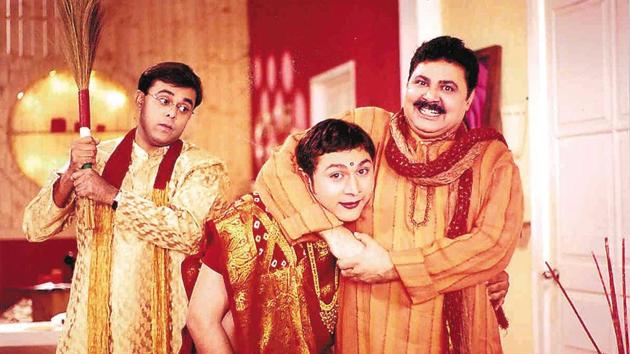
The Father Who Never Really Showed Up
As a father, Indravadan’s humor could sting.
There’s that unforgettable episode where, in an attempt to explain the word 'moisture', he empties a full glass of water on Rosesh. We laughed, but it was a cruel kind of “Hehe HA HA HA” laughter, where mockery often replaces affection.
Behind every prank was a man who didn’t know how else to show he cared. He teased Rosesh endlessly, and even Sahil wasn’t spared. Remember when he casually revealed Sahil’s embarrassing childhood habits in front of guests? It wasn’t hateful. But it was mischief without emotional awareness.
Indravadan mirrored what so many Indian fathers unknowingly do: use humor as affection and ridicule as love.
Rosesh’s insecurity wasn’t just a punchline; it was generational trauma playing out on screen. Even with Sahil, Indravadan’s bond was more camaraderie than parenting. He was the 'cool dad-daddy cool'! But coolness without empathy becomes detachment. He never guided, only entertained. And while audiences laughed, Indian kids who grew up with emotionally absent fathers might’ve seen too much of their reality in his jokes.
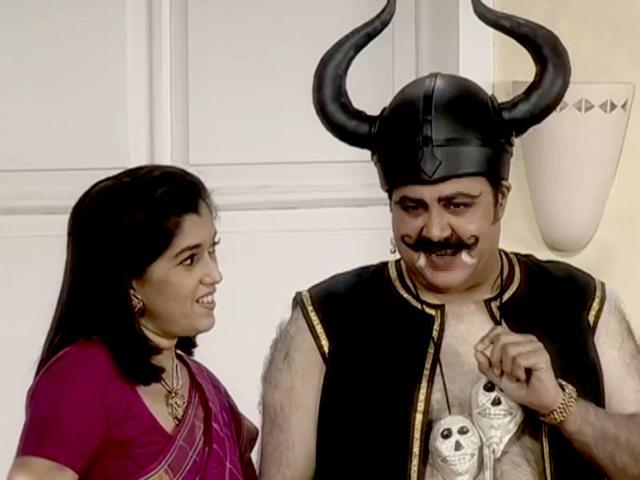
The Husband Who Never Stopped Pranking
If marriage is a lifelong series of compromises, Indravadan treated it like a lifelong prank war.
Who can forget the time he placed baby lizards on Maya’s hand during their first night together? Or the infamous gift box filled with black dust that exploded in her face? Only Indu could turn romance into slapstick and somehow still make us laugh through it.
He pushed Maya’s switches because he knew she’d always push back. Their marriage wasn’t perfect. It was playful, petty, and equal in its own weird way. She nagged, he teased. She scolded, and he smirked. And somehow, they found a rhythm only they could understand.
He was the husband who refused to drink milk despite his health issues, who defended his laziness with “Main mard hoon!” whenever asked to do basic chores. His hostel days in Scotland might have ended, but his laziness never did. Honestly, no woman could’ve put up with him, unless she was the sass-queen, Maya.
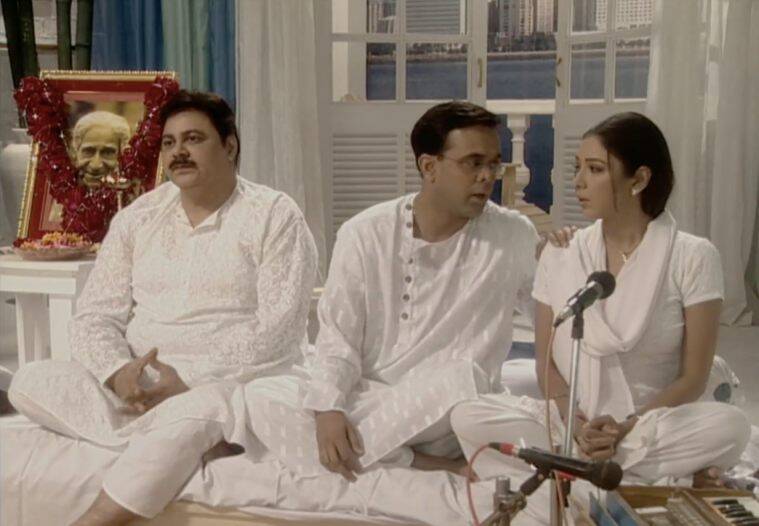
Humor Was His Language
That was Indravadan’s charm. Even when he annoyed you, he never felt cruel. Humor was his way of being present, even when he couldn’t be emotionally available.
And sometimes, he knew his jokes didn’t land, and that made them funnier. Like in the Baldev episode:
Indravadan: “Joke mara!” (I cracked a joke!)
Baldev: “Koi hasa?” (Did anyone laugh?)
Indravadan: “Nahi.” (No.)
Baldev: “Toh mat maro lagte nahi hai.” (Then stop. You’re not good at it.)
Or the episode where he proudly recited his 'funny' screenplay, a spoof of Sholay called Chole, and Monisha excitedly interrupted with, “Joke aagaya?” (Was that the joke?).
And how can anyone forget the iconic Popat Kaka shraddhanjali episode, where Indravadan reimagines Bollywood songs as funeral tributes, dragging Sahil into it, too? That entire sequence, with their perfectly misplaced grief, was hilarious and strangely tender. It’s one of those moments where humor and heart collided beautifully.
The Father-in-Law Every Woman Deserves
And yet, when Monisha entered the Sarabhai household, something changed.
Indravadan didn’t treat her like an outsider or project his snobbery the way Maya did. Instead, he defended her, encouraged her chaos, and saw her for who she was, unapologetically herself. That’s what made him the best father-in-law.
In a house that focused primarily on appearances, Indravadan decided to side with empathy instead of elitism. When Monisha committed yet another offense against class and culture, Maya rolled her eyes in disgust. Indu was already laughing along, probably guessing it’d make it to the next edition of 'List of Monisha’s Middle-Class Moments'. He didn’t expect her to be sophisticated; he wanted her to be genuine.
Come to think of it, there was never a single moment when Indravadan and Monisha actually fought. The writers somehow managed to create fights even between people who otherwise shared deep, loving bonds: Maya and Rosesh, and even Indravadan and Sahil, but never between Indravadan and his daughter-in-law, Monisha. Maybe because even the writer knew that this bond was untouchable, too gentle, too honest, too full of unspoken understanding to ever turn into conflict.
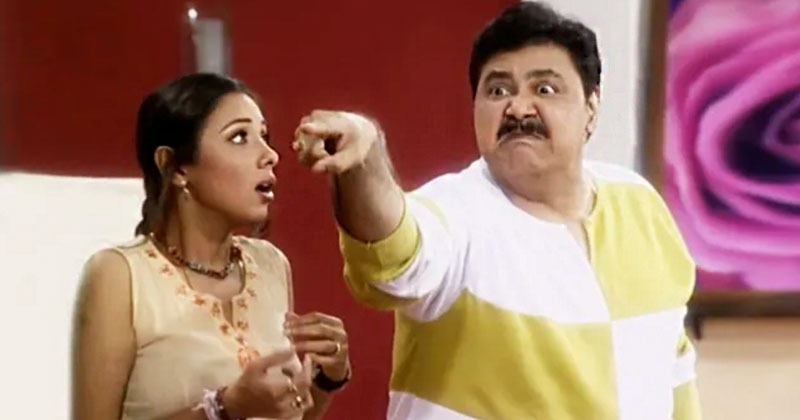
Partners in (Middle-Class) Crime
Remember the moment Monisha brought home that golden fish? Yes, the fish she got in exchange for money! Indu didn’t scold her or mock the absurdity of it. He joined in, helping her keep it, feeding it, even backing her up when she ran for the secretary post just to save that fish.
He didn’t just support her; he became her partner in crime. It was childlike, almost silly, but also revolutionary.
Indravadan’s pairing with Monisha turned out to be nothing but a blend of mischief and acceptance. They communicated through laughter and loyalty, an indirect yet deeply emotional bond. From working together in the treasure hunt to win the cricket club party vote, to letting her drive Sahil’s new car and taking the blame when things went wrong, he always had her back.
He could instigate a fight at the drop of a hat, the Narad Muni of the Sarabhai household, delighting in the sparks he set off, but his loyalty was unwavering when it came to Monisha. He’d rather be scolded by Maya than see Monisha feel small.
That’s why I always felt he was the father-in-law every woman deserves. One who lets you breathe, laugh, and be yourself without apology.
Why Indravadan Still Feels So Real
Two decades later, Indravadan Sarabhai still feels painfully familiar. He’s that uncle at family dinners who mocks everyone but loves them deeply. The husband who thinks teasing is intimacy. The man-child who refuses to grow up but never stops being entertaining.
And maybe that’s why we forgive him. Because in his exaggerated flaws, we see a generation learning (or failing to learn) emotional intelligence. His character wasn’t aspirational, but it was honest. It forced us to question why we laugh at dysfunction and call it ‘family dynamics’. Every joke about Maya, every insult to Rosesh, it was a mirror. We were laughing at ourselves.
What He Teaches Us About Indian Men
Indravadan wasn’t just a character. He was commentary.
He represented the Indian man caught between patriarchy and progress. A man who wanted comfort without confrontation, laughter without introspection. And while Maya’s elitism was mocked, Indravadan’s laziness was excused. That’s how gender roles quietly persist. The men stay 'funny', the women stay 'nagging'.
Yet his warmth toward Monisha showed what men are capable of when they let go of ego. He didn’t evolve much on screen, but his bond with Monisha offered a glimpse of a more emotionally aware kind of masculinity. One where acceptance mattered more than authority.
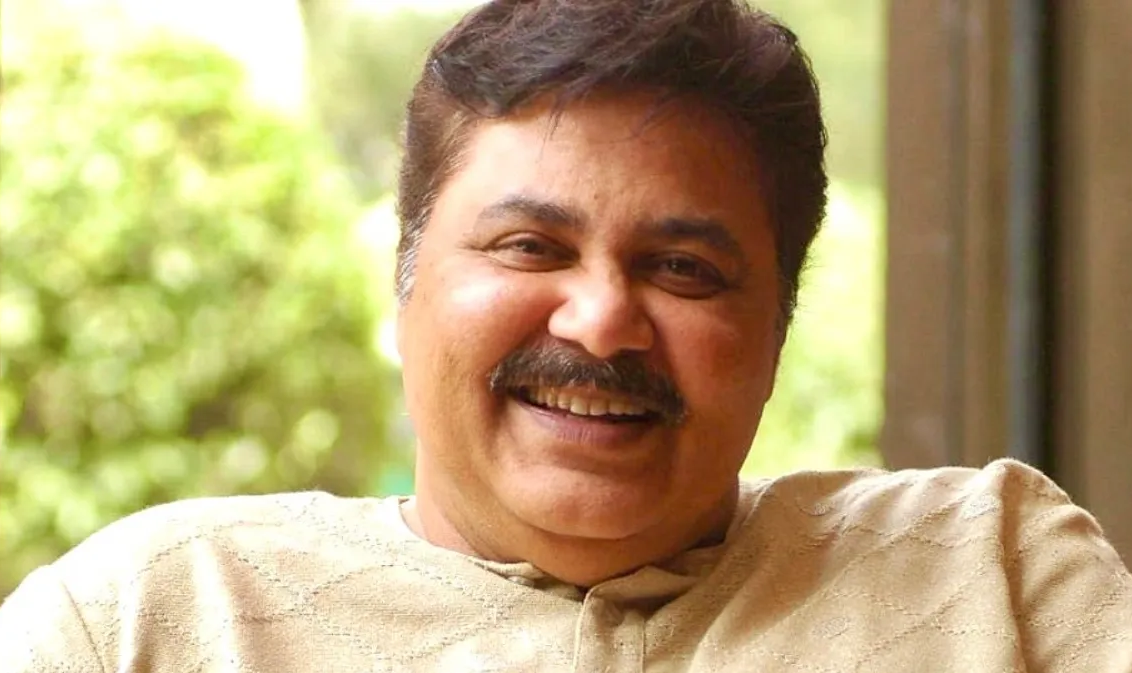
Love Through Imperfection
Indravadan Sarabhai wasn’t perfect. But that’s what made him unforgettable.
He taught us that laughter could hurt and heal at the same time, that care without consciousness was not love, and that sometimes love could be found in the most surprising places of a family.
For each Maya desiring sophistication, each Rosesh longing for approval, each Sahil looking for tranquility, and each Monisha feeling she does not belong, there is an Indravadan who enlightens us that love, in its best form, accepts and coexists with imperfections.
Maybe that’s why even now, when I think of him, I can still hear his voice.
“Meri speech abhi tak khatam nahi hui hai, tum taali mat bajao.”
(My speech isn’t over yet, don’t start clapping.)
It’s funny, but also fitting. Because Indravadan’s story, his laughter, love, and chaos can never really end.
Author’s Note
I wrote this piece as a lifelong Sarabhai vs Sarabhai fan, still grieving the loss of the irreplaceable actor Satish Shah.
His passing feels oddly personal. I still quote the show every day with my mom and friends, and somehow, it never gets old. It’s the one thing I can watch a hundred times and still laugh like it’s the first.
Indravadan Sarabhai wasn’t just a character; he was comfort, chaos, and comedy rolled into one. Satish Shah made him unforgettable.
When I heard of his death, I honestly thought it was one of Indu’s pranks. I was even watching the Séance to Connect with Baa episode that day and caught myself wishing I could bring him back with aatmaropan prayog, just for one more laugh.
Heaven’s definitely a happier place now because Indu’s there, probably cracking jokes, stirring celestial gossip, and reporting live as our beloved Narad Muni.
Love you, Daddy ji.
No one could’ve played Indu better, Satish Sir.